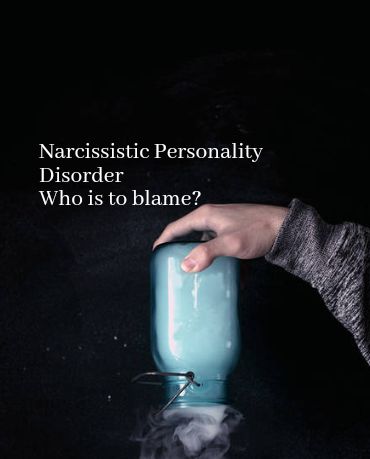Narcissistic people have become the subject of much discussion and venting in recent times. Their self-centeredness and lack of empathy for others can be frustrating and even hurtful.
 However, it's important to remember that they are not the only ones to blame for their behavior.
However, it's important to remember that they are not the only ones to blame for their behavior.
Consider the example of someone addicted to drugs. While the addict may be the one using the drugs, there are often enablers who supply them with the substances they crave. These enablers may not be using the drugs themselves, but they are just as responsible for the addict's behavior as the addict is. They are supplying the powder keg, so to speak.
Similarly, in relationships with narcissistic people, there are often enablers who allow the narcissist to continue behaving badly. These enablers may be family members, friends, or even romantic partners who excuse the narcissist's behavior or make excuses for them.
It's important to recognize that enabling behavior is harmful and can perpetuate destructive patterns.
By enabling someone's behavior, we are essentially giving them permission to continue behaving badly. We must take responsibility for our own actions and stop enabling destructive behavior, whether it be drug addiction or narcissism.
In conclusion, while it's easy to blame narcissistic people for their behavior, we must also recognize the role of enablers in perpetuating these patterns. We must take responsibility for our own actions and stop enabling destructive behavior. By doing so, we can promote healthier relationships and help others to break free from destructive patterns
Narcissistic abuse is a form of emotional and psychological abuse that can be difficult to describe and even harder to recover from. One reason for this is that those who have experienced narcissistic abuse have often enabled the behavior of the narcissist, sometimes without even realizing it. This investment in the abuse can make it hard to recognize and describe what is happening.
Enabling is a behavior that allows the narcissist to continue their abuse without consequences. Those who enable the narcissist may excuse their behavior, cover up for them, or even participate in their abuse. When we enable the narcissist, we are invested in the abuse just as much as they are. We may not be the ones perpetrating the abuse, but we are complicit in allowing it to continue.
This investment in the abuse can make it difficult to recognize and describe what is happening. We may feel confused, ashamed, and even guilty for our role in enabling the narcissist. Additionally, the narcissist may have gaslighted us into believing that the abuse is our fault or that it's not really happening at all. This can make it even harder to describe what we are going through.
To recover from narcissistic abuse, we must first recognize and take responsibility for our own enabling behavior. This can be a painful and difficult process, but it is essential for healing. We must also learn to recognize the tactics of the narcissist and develop healthy boundaries to protect ourselves.
It's important to remember that recovery from narcissistic abuse is possible. It may take time and hard work, but it is worth it to reclaim our lives and our sense of self. By breaking free from the cycle of enabling and abuse, we can begin to heal and move forward towards a brighter future.
In conclusion, describing narcissistic abuse can be difficult when we have enabled the behavior of the narcissist. By recognizing our own role in the abuse and taking responsibility for our enabling behavior, we can begin to heal and move forward. With time, effort, and support, we can break free from the cycle of abuse and reclaim our lives.
Comments
Post a Comment